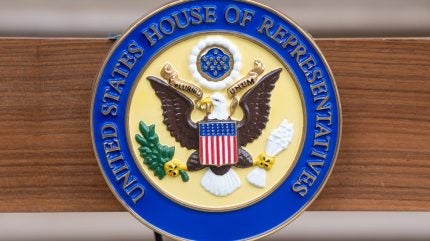
The Trump administration’s budget reconciliation bill has passed the US House of Representatives by a wafer-thin single-vote majority.
Passing the House by 215-214 votes and now set for a vote in the US Senate, observers warn that the bill, which the White House estimates will save the government around $900bn over the next decade, will have a profound impact on the US’s Medicare and Medicaid health insurance programmes.

Discover B2B Marketing That Performs
Combine business intelligence and editorial excellence to reach engaged professionals across 36 leading media platforms.
The bill outlines changes to Medicaid, including new work requirements for claimants. Critics have warned that such changes could inadvertently kick qualified candidates off the programme due to increased administrative hurdles such as stricter eligibility checks and a ban on using Medicaid funding for gender-affirming care for minors.
Analysing policy options previously touted by Republicans to reduce Medicaid funding following the bill’s release on 11 May, non-partisan think tank the Congressional Budget Office (CBO) has estimated that it could cut the number of people eligible for coverage by around 8.6 million over the next decade and result in up to 13.7 million Americans losing their health insurance by 2034.
Calling the Medicaid and health insurance marketplace provisions currently included in the bill “harmful”, American Hospital Association (AHA) president and CEO Rick Pollack said the “sheer magnitude” of the level of reductions to the Medicaid programme alone will “impact all patients, not just Medicaid beneficiaries, in every community across the nation”.
“Hospitals – especially in rural and underserved areas – will be forced to make difficult decisions about whether they will have to reduce services, reduce staff and potentially consider closing their doors,” Pollack said.

US Tariffs are shifting - will you react or anticipate?
Don’t let policy changes catch you off guard. Stay proactive with real-time data and expert analysis.
By GlobalData“Other impacts could include longer waiting times to receive care, more crowded emergency departments, and hospitals not being able to invest in technology and innovations for clinical care.”
The American Civil Liberties Union (ACLU) asserts that the bill will also have a disproportionate impact on healthcare for individuals with disabilities and block access to reproductive healthcare.
ACLU’s chief political and advocacy officer Deirdre Schifeling said: “The bill asks poor and disabled Americans to pay more for medical care and imposes burdensome work requirements and bureaucratic paperwork designed to exclude people from the coverage they need.
“Let’s call this what it is: taking Medicaid away from sick people and low-income families in order to fund tax cuts for billionaires and turbocharge deporting immigrants who have lived, worked, and raised their families here for years.
“The Senate must do its job, represent their constituents, and reject this upside-down world bill.”
Following the vote in the House, President Trump took to his social media network, Truth Social, writing: “THE ONE, BIG, BEAUTIFUL BILL” has PASSED the House of Representatives!
“This is arguably the most significant piece of Legislation that will ever be signed in the History of our Country!”


